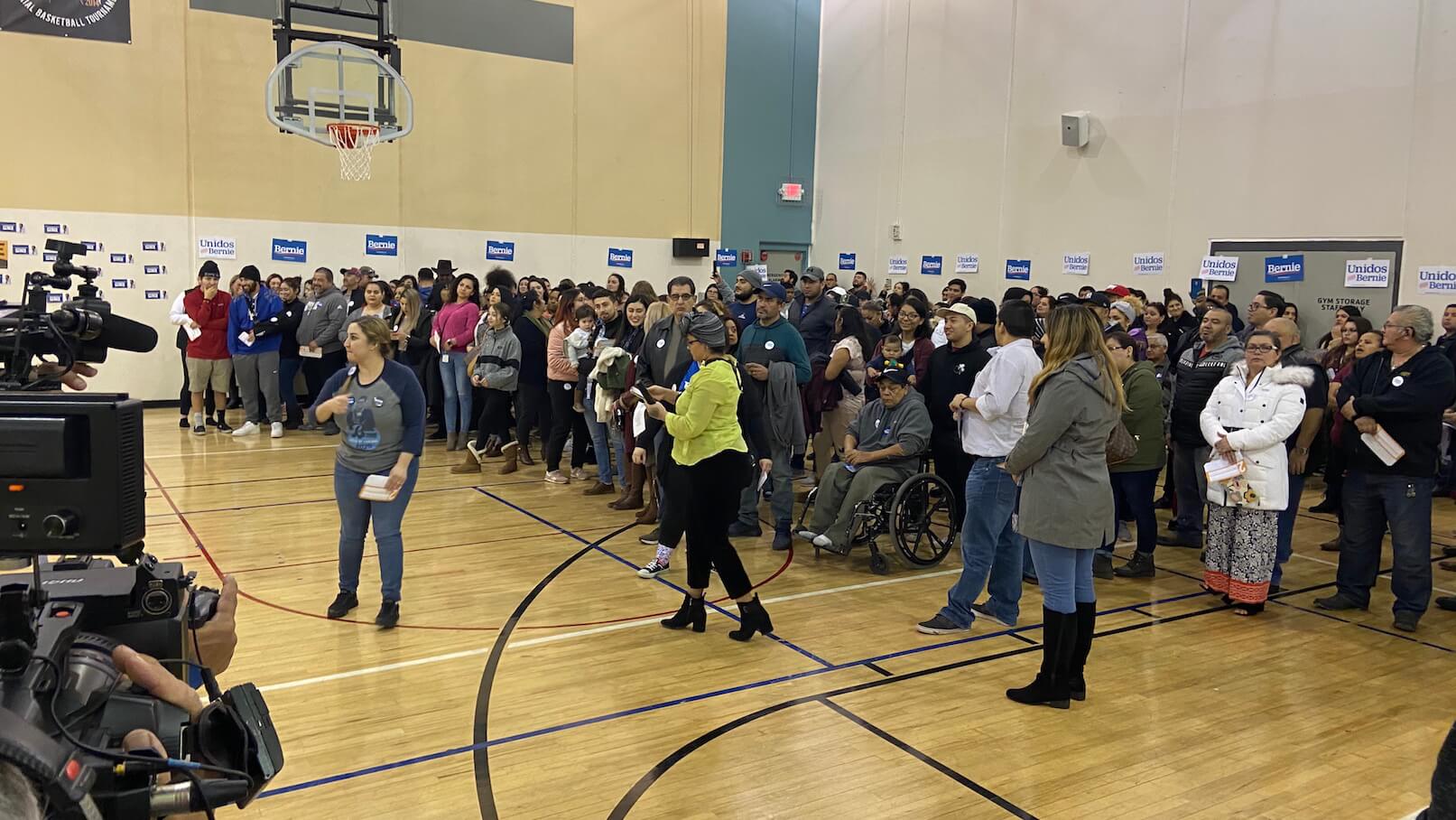
Well, it was fun while it lasted.
The end of Iowa’s lead-off role in the Democratic presidential nomination calendar is about to be official. Reporting on Thursday revealed the plans that everyone expected, that the DNC’s Rules and Bylaws Committee will boot Iowa from the early state window and add two others in its place.
President Joe Biden’s preferred order is South Carolina, then New Hampshire and Nevada on the same day, then Georgia, followed by Michigan. Despite some chatter, I doubt Iowa Democrats will actually try to rebuke the final decision and hold a revised caucus ahead of what’s mandated.
The merits of Democrats’ Iowa Caucus has been debated endlessly here and nationally both before and after the 2020 mess. All I’ll add is I think this result was inevitable given way too many legitimate factors working against Iowa’s place, though I believe the calendar still would have benefited from the state being in the early window, even if it was no longer first.
Perhaps a better approach may have been angling to simply stay in that early timeframe, along with sweeping caucus reforms already decided and announced, but whatever. What’s done is about to be done.
[inline-ad id=”0″]
But Democrats nationally shouldn’t congratulate themselves just yet that they’ll actually fix much by dumping Iowa. And they would be wise to consider the benefits that Iowa did provide over the decades—even if the downsides outweighed them—and consider if their new plan keeps any of that upside around.
Meanwhile, a lot of the Iowa activists who soured on Iowa’s Democratic caucus may want to check their cynicism—there were a lot of under-appreciated perks (and I don’t mean candidate selfies) the party will no longer have and will need to make up for.
What The Country Loses
Outsider Competition
By far and away the biggest benefit of Iowa’s first-place role was that it allowed for underdog candidates to have a shot. A small state, cheap media markets, and an emphasis on in-person organizing meant lesser-known contenders stood a chance to break out, gain momentum, or at least better shape the broader debate.
Iowans like their outsider candidates, and establishment front-runners have often met their match here. Iowa helped propel Barack Obama to the presidency, set up Bernie Sanders for a long campaign with the razor-close margin with Hillary Clinton in 2016, and Pete Buttigieg may have gotten a bigger boost in 2020 were it not for the reporting delay.
That kind of competition on a more even playing field is extremely healthy for a party.
It keeps campaigns innovative, challenges the establishment, and allows for new voices—both from candidates and their supporters—to emerge.
From that perspective of competition, it’s interesting that Biden would personally intervene to promote deep-red South Carolina—his strongest early primary state from 2020—into the first-place position.
In his letter to the DNC, Biden also urged the party to review the calendar every four years, which implies the possibility of switching up who goes first often. That might look nice at first glance, but in the worst case scenario, that could lead to incumbent presidents lining up their friendliest states to stave off primary challenges or pave the way for their chosen successor. When Republicans control the White House, it could also lead to DNC delegates trying to shape the calendar ahead of time to favor a preferred candidate.
Having a completely static calendar presents its own problems, but this new development bares the closest scrutiny moving forward, especially for a party so concerned about a fair democracy.
Democrats should think long and hard about how they can help maintain a competitive process with the new calendar. Heavy-handed DNC debate qualification rules should be the first to go, and influential Democrats in the newly-added states, if they wish to live up to the spirit of early-state status, should hold back on endorsements until late in their process.
[inline-ad id=”2″]
Organizing To Win
The structure of Iowa’s precinct caucuses was an overly-complicated system that excluded people and should have been heavily reformed or abandoned years ago. However, it did bring one benefit that Democrats should strive to replicate somehow elsewhere—it forced candidates to campaign everywhere in the state and build up strong, grassroots organizations.
You couldn’t simply run up the totals in one area of Iowa or with one group of supporters. A deluge of TV ads wouldn’t cut it, and a hard-working activist well-known in their community was worth way more than the 12th direct mail piece.
The vast field operations that Democrats built here in Iowa also greatly contributed to the party’s longterm staffer/operative pool in nearly every state around the country. Campaigns’ experiments and innovations here informed best practices in countless other non-Iowa races.
Working on an Iowa Caucus campaign was often described as “resume gold” in Democratic politics, not because of the connections you made out of it, but because organizing here was a great trial-by-fire experience. Iowa field staffers had to build meaningful, personal relationships with the voters they hoped to win over. It made them far better operatives than if they had simply climbed the ladder in the D.C. circuit.
Presidential campaigns were already moving toward a more national, social media and cable news-hit method of building momentum. That is a bad development, and one that voters in the remaining/new early states should push back on. Don’t support a candidate who won’t campaign locally, meet real people and listen to their personal stories—it’s extremely helpful to them and the party overall, even if nervous campaign strategists fear unscripted moments.
[inline-ad id=”2″]
What Iowa Loses
Save for a few defiant holdouts, most Iowa Democrats seem resigned to the coming fate. And in the broader picture, I’m not so sure the caucus was a net-positive for the party here over the past two cycles.
However, I think many are too casually dismissing the demise of the caucus while not considering some of the significant benefits it brought (ones that aren’t KCCI’s ad revenue). While there were real problems with the caucus, activists’ time would be better spent coming up with ideas of what comes next and how to make up for the below losses.
New Class Of Activists
The greatest thing the caucus provided to Iowa Democrats (and I believe the most under-appreciated) was activating a fresh class of new activists and volunteers every four or eight years. When I think of all the Democrats involved in campaigns or elected office I know, well over half of them first got engaged during a caucus campaign.
There is nothing that can replicate the excitement of being part of a presidential campaign in its early stages. You felt like you can have a significant impact on who the next president is because, if you worked hard in Iowa, you really could. Local field offices in small towns were bustling with activity and camaraderie, and many of the Iowans inspired by a presidential hopeful stayed engaged long after the circus left.
Iowa Democrats already have a problem with their activist base being too old and too white. But it really would be even worse right now were it not for the constant influx of new blood from the caucuses.
This will be the hardest deficit for Iowa Democrats to make up moving forward. Future state candidates will need to build their own new activist class, and local county parties have to double down on their efforts to bring in new community members and find ways to make dull party meetings more interesting and inviting.
[inline-ad id=”3″]
National Investments
Iowa Democrats thought things couldn’t get much worse for their party after the 2020 elections. They found out in 2022 that it definitely could. I believe a key finding once people dig deeper into the data will be that the lack of national financial assistance (even though it comes with its own problems) really hurt the party down-ballot. Getting outspent by the margin they did by Republicans appears to have had a devastating impact on Democratic turnout.
The party here will be even more on their own without the influx of attention and cash both in the cycle before and during the caucus. Building up a new, broader donor base is essential moving forward.
Progressive Infrastructure Funding
Along that same topic, a big be-careful-what-you-wish-for moment may be reserved for progressives who preferred to end the caucus and Iowa’s role. Money for lefty causes isn’t easy to come by, but Iowa saw an influx of it as national progressive organizations looked to prep the electorate here to push the presidential field on their issues. A lot of people got hired to build up the progressive movement in Iowa thanks to the caucus.
The new proposed calendar appears to be very favorable for the establishment and a setback for outsider candidates’ chances. We’ll see if removing the negatives of the caucus process ends up being worth it for the left in the long-run.
Iowa Relationships
I’m trying not to end this with a “the real Iowa Caucus was the friends we made along the way,” but it’s kind of true.
Within the first month of moving to Iowa in 2003, I got to drive John Kerry around the state as a college freshman and built up lasting friendships with talented people from all over the country. You couldn’t get that experience anywhere else.
Everyone who’s been involved on a caucus campaign has their own stories of meeting or even becoming friends with a candidate, getting their personal story heard by some of the most influential leaders in the country, and building lifelong friendships with like-minded compatriots in their cause.
[inline-ad id=”4″]
For all its faults, you can’t deny that being involved in the Iowa Caucus was fun and inspiring.
Inspiration and actually enjoying the hard work of pushing for change is crucial to the longterm success of any movement or party. It brought more people into process who fought together to change the country for the better. Yeah, there were always some embarrassing clout-chasers, but the vast majority of Iowans got involved and then stayed involved to fight for something bigger than themselves.
Anger and cynicism may get you lots of likes on Iowa politics Twitter, but it’s a lousy way to actually get anything done—and it doesn’t bring more people into the cause.
The sooner Iowa Democrats—all Iowa Democrats, not just leadership—turn their focus toward what comes next, move past the endless caucus debate, and figure out how to fill the void of the benefits it brought, the better off the party and the state will be.
by Pat Rynard
12/2/22
Iowa Starting Line is part of an independent news network and focuses on how state and national decisions impact Iowans’ daily lives. We rely on your financial support to keep our stories free for all to read. You can contribute to us here. Also follow us on Facebook and Twitter.
[inline-ad id=”0″]
Politics

Biden marks Earth Day by announcing $7 billion in solar grants
The Biden administration on Monday announced the recipients of its Solar For All Program, a $7 billion climate program that aims to lower energy...

6 terrifying things that could happen if the Comstock Act is used to target abortion
Does 1873 sound like a really, really long time ago? Well, that’s because it is—but if Republicans and far-right anti-abortion activists have their...
Local News

No more Kum & Go? New owner Maverik of Utah retiring famous brand
Will Kum & Go have come and gone by next year? One new report claims that's the plan by the store's new owners. The Iowa-based convenience store...

Here’s a recap of the biggest headlines Iowa celebs made In 2023
For these famous Iowans, 2023 was a year of controversy, career highlights, and full-circle moments. Here’s how 2023 went for the following Iowans:...






